Tim Kaine Boycotted Netanyahu Speech, Backed Iran Deal
Tim Kaine joined anti-Israel radicals in boycotting Israeli Prime Minister Benjamin Netanyahu’s speech, and blocked a vote on the Iran deal.

Tim Kaine joined anti-Israel radicals in boycotting Israeli Prime Minister Benjamin Netanyahu’s speech, and blocked a vote on the Iran deal.

The American Israel Public Affairs Committee (AIPAC), the pro-Israel lobby group long seen as one of the most powerful organizations in Washington, is blaming Israeli Prime Minister Benjamin Netanyahu’s speech in March for the imminent passage of the Iran deal.

Israeli Prime Minister Benjamin Netanyahu criticized President Barack Obama directly on Thursday evening, telling him that the new framework agreement on Iran’s nuclear program “threatens the survival of the State of Israel.” The two leaders spoke by telephone to discuss the preliminary deal that negotiators from the P5+1 nations reached with Iran at talks in Lausanne, Switzerland that extended past the original Tuesday deadline.

Forty-seven U.S. Senators have released an open letter to the Iranian government warning that any nuclear deal signed by President Barack Obama could be revoked by a subsequent U.S. president unless it is ratified by the Senate. The letter, while addressed to the “Leaders of the Islamic Republic of Iran,” is really a warning to Obama not to bypass Congress.
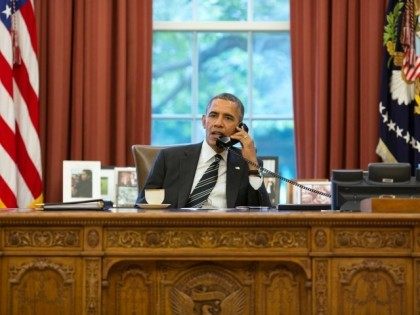
Gallipoli was a failure that haunted Churchill as much as supporting the Iraq War haunts many politicians today. Yet he was right about Hitler when others hid from the truth. Churchill, like Netanyahu and unlike Barack Obama, worried more about victory than pride.

Iran’s Foreign Minister, Javad Zarif, sat down with NBC News this week for an exclusive interview. NBC’s headline for the interview is: “Iran Foreign Minister: We Believe We Are ‘Very Close’ to Nuke Deal.” But the Times of Israel noted a buried lede–“Zarif: The Netanyahu regime ‘should be annihilated’.” While the American editors focused on boosting prospects for President Barack Obama’s signature diplomatic initiative, their Israeli counterparts focused on the threat that remains.
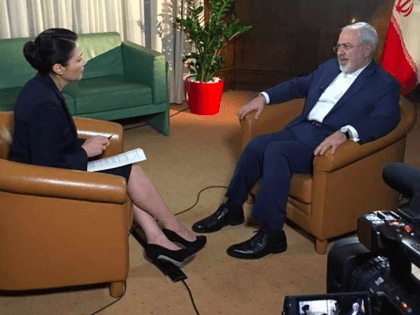
Israeli Prime Minister Benjamin Netanyahu returned home Wednesday to positive reviews of his speech in Congress the day before. If it had been his intention to use the event to boost his campaign, however, he made little impact, enjoying a modest bump in the polls, at best. In one poll, the speech received rave reviews, with 44% of respondents saying it boosted their opinion of him, versus 12% who said it hurt their image of him. However, his Likud party was still in second place.
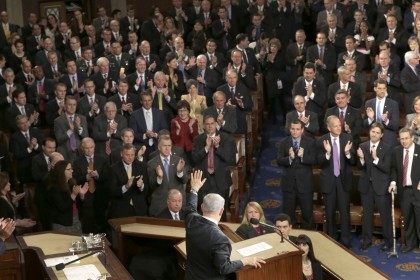
It does not matter whether they attended the speech, boycotted the speech, or read the transcript of the speech. Democrats, surprised by how convincing Benjamin Netanyahu’s speech to Congress on Tuesday turned out to be, have simply decided to lie about it. Netanyahu said “we should give up on any diplomatic path,” according to Rep. Jared Huffman (D-CA). He failed to provide “viable alternatives,” according to President Barack Obama. None of that is true, as the transcript shows.

Israeli Prime Minister Benjamin Netanyahu’s address to a special joint session of Congress on Tuesday was so successful that many of his critics conceded that he had defied their expectations. Some, however, took issue with the fact that he invoked

Following his stirring address to a joint session of Congress on Tuesday, Prime Minister Benjamin Netanyahu will return home, having made his point about the dangers of the Iran deal currently on the table. The question is: what next for Congress? President Barack Obama has vowed to veto any new sanctions–and may have sown enough division in his party to prevent an override. Yet there is another bill in the works that, after Tuesday, Obama may find he cannot refuse.

How successful was Israeli Prime Minister Benjamin Netanyahu’s speech to a special joint session of Congress on Tuesday? Judging from the changed reactions of his media critics, almost all of whom praised the speech, it was a complete triumph.

House Foreign Affairs Committee Chairman Rep. Ed Royce (R-CA) and Ranking Member of the Committee Rep. Elliot Engel (D-NY) distributed an undated, bipartisan letter they intend to send to President Barack Obama as Israeli Prime Minister Benjamin Netanyahu’s addresses a joint session of Congress. The letter underscores the widely-held belief that Iran cannot be trusted, particularly when taking into accounting the secretive nature of its past weapons program.

Israeli Prime Minister addresses Congress on Tuesday, March 3. His topic, as per Speaker of the House John Boehner, is to explain “the grave threats radical Islam and Iran pose to our security and way of life.”

While nearly 1 in 4 congressional Democrats had announced their intention to boycott Israeli Prime Minister Benjamin Netanyahu’s speech before a joint session of Congress on Tuesday, one California Democrat said that he was “honored” to have been chosen to be among the legislators who escort Netanyahu into the House chamber.

Chairman of the House Foreign Affairs Committee Rep. Ed Royce (R-CA) highlighted Israeli Prime Minister Benjamin Netanyahu’s upcoming address to a joint session of Congress on Tuesday as a critical event and expressed his concern over the unprecedented contention he has been witnessing surrounding Netanyahu’s appearance.
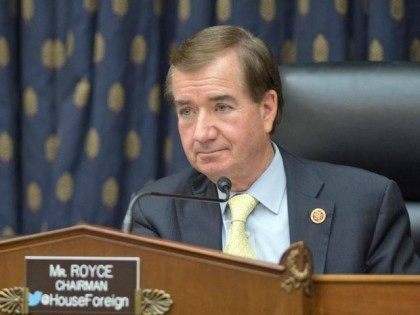
Israeli Prime Minister Benjamin Netanyahu’s address Monday morning to the American Israel Public Affairs Committee (AIPAC) seemed a curious addition to his visit, a kind of undercard bout before the main event. It turned out to be one of his best speeches ever, the perfect setup for his address to a special joint session of Congress on Tuesday. The 34 Democrats who are boycotting the address are likely feeling that they made the wrong decisions. Here are 5 reasons why.

Israeli Prime Minister Benjamin Netanyahu previewed his speech in Congress on Tuesday when he addressed the annual policy conference of the American Israel Public Affairs Committee (AIPAC) on Monday. “Reports of the demise of the Israeli-U.S. relations [are] not only premature–they’re just wrong. You’re here to tell the world that our alliance is stronger than ever,” he said, to applause. “Never has so much been written about a speech that hasn’t been given,” he joked.

UN Ambassador Samantha Power told the American-Israel Public Affairs Committee (AIPAC) on Monday that the spat over Israeli Prime Minister Benjamin Netanyahu’s speech to Congress on Tuesday would not affect relations between the two countries. The relationship, she says, “transcends politics, and always will.” She said that the partnership between the U.S. and Israel “should never be politicized,” even if there were debates about the best policy to deal with common threats.

In most democracies, and especially small ones, politics ends at the water’s edge. Whatever criticism the opposition might have about the government, especially the leader, it refrains from doing so purely for the benefit of a foreign audience. Not so for the Israeli opposition, headed by Isaac Herzog of the Zionist Union, who has not only bashed Israeli Prime Minister Benjamin Netanyahu’s trip to the United States as a purely political move, but has done so in a New York Times op-ed.

Sen. Dianne Feinstein attacked Israeli Prime Minister Benjamin Netanyahu on Sunday morning as “arrogant” for asserting that he speaks for all Jews in his upcoming speech to Congress. According to Jewish law, Feinstein is not Jewish herself. Feinstein’s father was Jewish; her mother came from parents of the Russian Orthodox faith.

I’m fasting Monday and praying for Benjamin Netanyahu’s success in his speech to Congress on Tuesday. I don’t care for the pettiness of his American Jewish critics, who typify the establishment that remained silent during the Holocaust; nor the hysterics of his Israeli opponents, who prove by their behavior they are unfit to lead. I am hoping sense will prevail. I trust God and not the mainstream media, here and abroad, who have declared Netanyahu’s speech a disaster in advance.

There is a simple question that every critic of Benjamin Netanyahu’s speech to Congress on Tuesday must answer: should he rather wait, as Ukrainian President Petro Poroshenko did, and address Congress after suffering a crushing defeat? Or should Netanyahu hasten to warn America before disaster strikes, before a deal is done with Iran that cannot be undone?

Nobel laureate, Holocause survivor, Jewish leader and world literary figure Elie Wiesel will participate in a bipartisan dialogue on the eve of Israeli Prime Minister Benjamin Netanyahu’s controversial speech to a joint session of Congress.

And Esther said to Hathach, and she ordered him to [tell] Mordechai: “All the king’s servants and the people of the king’s provinces know that any man or woman who comes to the king, into the inner court, who is not summoned, there is but one law for him, to be put to death, except the one to whom the king extends the golden scepter, that he may live, but I have not been summoned to come to the king these thirty days. And they told Esther’s words to Mordechai. And Mordechai ordered to reply to Esther, “Do not imagine to yourself that you will escape in the king’s house from among all the Jews.” (Esther 4:10-13)

President Barack Obama is sending National Security Advisor Susan Rice and UN Ambassador Samantha Power–widely seen as among the most anti-Israel members of his administration–to address a prominent pro-Israel gathering next week. The move is described by the Associated Press as an effort to mend fences after the administration had withheld speakers from the American Israel Public Affairs Committee (AIPAC) policy conference. In reality, it is a further slap in the face.

Many of the Democrats denouncing Israeli Prime Minister Benjamin Netanyahu’s speech next week to a special joint session of Congress as an intrusion into U.S. domestic politics leapt to their feet in 2010 when then-Mexican President Felipe Calderon, in a similar
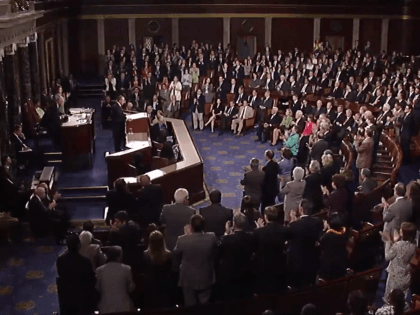
Secretary of State John Kerry told the House Foreign Relations Committee on Wednesday that the U.S. should be wary of trusting Israeli Prime Minister Benjamin Netanyahu’s warnings on Iran, because Netanyahu had also backed the Iraq War. Kerry’s remarks were hypocritical, since he also supported the war. And they raise the disturbing suggestion, beloved of conspiracy theorists, that Israel is dragging the U.S. to war. Yet it is worth asking whether Kerry’s criticism has merit.

Israeli Prime Minister Benjamin Netanyahu has turned down an invitation to meet with Senate Democrats, according to Reuters, politely informing them that meeting with one party alone “could compound the misperception of partisanship regarding my upcoming visit,” according to Reuters. It is a response that reprises Democrats’ complaints about the speech Netanyahu is to deliver before a joint session of Congress on March 3–and turns their own arguments against them.

Former Harvard Law School professor and renowned defense attorney Alan Dershowitz has slammed President Barack Obama and congressional Democrats over their efforts to undermine Israeli Prime Minister Benjamin Netanyahu’s speech to Congress next week. In an op-ed to be published in Tuesday’s Wall Street Journal, Dershowitz accuses “Obama of direct intrusion on the power of Congress and on the constitutional separation of powers” in his objections to the speech.

I lifted the .45 semi-automatic, charged it, and aimed at the base of his throat. I squeezed the trigger, and put a bullet through my mark as the Springfield XD kicked sharply.My next shot was left of center, above the right lung, as I struggled to recover my aim. My next shots, though, were right where I wanted them: above the hands, through the heart, between the eyes. At the signal, we retrieved our targets, perforated Hitler caricatures with the words “Never Again” in Gothic script.

The strong opposition to Benjamin Netanyahu’s speech to Congress on March 3 is making an important speech even more so. The address, on the eve of a grim nuclear deal with Iran, and against overwhelming political pressure at home and abroad, may be the most important speech on geopolitical affairs since Ronald Reagan’s remarks at the Berlin Wall in 1987. It is also already a turning point in Jewish history.

New polls indicate that the surge enjoyed by Israeli Prime Minister Benjamin Netanyahu in polls over the past two weeks may be ending. A survey of likely voters by the Times of Israel showed Netanyahu’s opposition, the Zionist Union, headed by opposition leader Isaac Herzog, now has a small but significant lead. In addition, among the roughly 1 in 4 voters still undecided before the Mar. 17 elections, more are leaning towards the opposition than Netanyahu’s Likud.

Secretary of State John Kerry held a surprise meeting Sunday with his Iranian counterpart, Javad Zarif, in Munich–the city made infamous for “appeasement” after the western powers granted Hitler part of Czechoslovakia in 1938. Meanwhile, Israeli Prime Minister Benjamin Netanyahu told his Cabinet that he intended to resist the deal that Kerry and Zarif were striking.
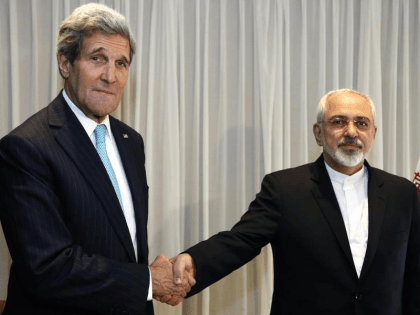
There are probably some friends of Israel who oppose Netanyahu’s speech out of a sincere concern that he might alienate the Obama administration. Some of those calling upon him to cancel, like Herzog, have personal political gain in mind. And some, like Rabbi Jacobs and the Democrats in Congress, seem more worried about the political embarrassment to President Barack Obama that might result from Netanyahu exposing the failure–and danger–of Obama’s Iran policy.

Despite a supposed White House policy against meeting foreign leaders facing elections, Vice President Joe Biden and Secretary of State John Kerry both met with Israeli opposition leader Isaac Herzog in Munich on Saturday. Herzog is the main rival of Israeli Prime Minister Benjamin Netanyahu in the Mar. 17 election, and his supporters played up the meeting as evidence that Herzog is more respected by the Obama administration and world leaders in general than Netanyahu.

Despite–or perhaps because of–the outrage of the Obama administration and left-wing Democrats in Congress, Israeli Prime Minister Benjamin Netanyahu and his Likud party continue to surge in Israeli polls, reaching their widest lead of the election thus far, according to a Jerusalem Post/Maariv Sof Hashavua poll. The poll, which shows Likud leading its closest rival by four seats in the 120-seat Knesset, is the widest lead that the Likud has enjoyed leading up to the Mar. 17 election.

The New York Times has continued its reflexive bias against Israeli Prime Minister with a story Friday alleging, falsely, that Israeli Prime Minister Benjamin Netanyahu went behind President Barack Obama’s back in arranging a speech to Congress in March. In fact, Netanyahu only accepted Speaker of the House John Boehner’s invitation once the White House knew of the invitation. The story has since been corrected online, but the incorrect version will misinform print readers today.

The left hates Israeli Prime Minister Benjamin Netanyahu. Some hate him as they would hate any Israeli leader; they just hate Israel (and they may hate Jews, too). Some hate him because they love Obama, and Netanyahu stands up to Obama–which is why many Democrats who would otherwise love Bibi have chosen to hate him. But at the core, the left hates Netanyahu because just as Israel is a nation-state in a post-national world, Bibi is a modern man in a post-modern era.

The New York Times has launched a full-court press against Israeli Prime Minister Benjamin Netanyahu and Israeli Ambassador Ron Dermer over Netanyahu’s acceptance of an invitation by Speaker of the House John Boehner to address Congress on the subjects of Iran and radical Islam in March without coordinating with the White House.

The speech that Prime Minister Benjamin Netanyahu will deliver to a special joint session of the US Congress in March will be the most important address by an Israeli leader in the history of the Jewish state.
